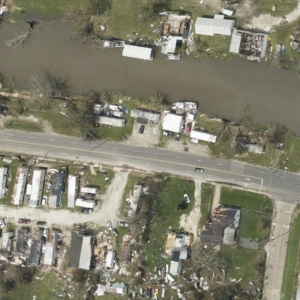The Stream, September 2, 2021: Brazil’s Energy Crisis Worse Than Previously Anticipated, Officials Say
YOUR GLOBAL RUNDOWN
- As drought worsens and hydropower generation dwindles, Brazil’s energy crisis is worse than officials originally thought.
- Communities of color on Virginia’s coastline are disproportionately affected by sewage disruptions.
- New legislation in North Carolina could fast track a farm project that environmentalists say supports obsolete waste management practices that cause air and water pollution.
- Insurance companies could face $18 billion in losses from Hurricane Ida in the United States and the Caribbean.
Monsoon rains in eastern India have left thousands stranded on the roofs of their homes.
“There is no clean water to drink, food to eat and the children are crying for milk. We are praying for help because the government has yet to send relief.” – Santosh Mandal, who moved his family to a sandbank in Bihar’s Supaul district after their village was flooded. Monsoon rains are flooding districts across the Indian states of Assam and Bihar, forcing residents to flee to higher ground or be left stranded on the roofs of their homes. After more than a week of constant downpours, rivers like the Brahmaputra have burst their banks. Many villages, Al Jazeera reports, have been submerged in up to two meters (6.6 feet) of water.
IN RECENT WATER NEWS
Colorado River Forecasts Not a ‘Crystal Ball’
Every month the Bureau of Reclamation attempts to peer two years into the future of the Colorado River and its reservoirs.
Typically nested in wonkish obscurity, Reclamation’s 24-month study acquired newfound public prominence in recent weeks. The August results are the most important of all the months because they determine how much water will be released in the following year from Lakes Mead and Powell. Because Mead is so low, the August results triggered the first-ever Tier 1 shortage on the lower Colorado River, a declaration that means mandatory cuts in water deliveries in 2022 to Arizona, Nevada, and Mexico. Because Powell is so low, dam managers will release a comparative trickle of water next year, so little that Mead is likely to plunge even lower.
More eyes than usual on a technical product that was designed to guide reservoir operations means more potential for misinterpretation, especially by people unfamiliar with the study and its assumptions.
In Case You Missed It:
HotSpots H2O: Flash Floods and Landslides Devastate Western Venezuela – Torrential rain fell relentlessly this past week in western Venezuela.
What’s Up With Water – August 30, 2021 – This week’s episode covers plans to build seawater desalination plants in Egypt, a potential storage site for nuclear waste near Lake Huron in Canada, and new research that found that climate change is behind the intensity of deadly storms that hit Germany and Belgium last month.
Black Communities on Virginia’s Coast Disproportionately Suffer From Sewage Issues
In parts of coastal Virginia, historically Black communities are disproportionately affected by sewage issues. Mary Hill, a Black oyster farmer in the state, told The Guardian that sewage leaks stopped her from harvesting for four months. Sewage problems are also common in homes in predominantly Black neighborhoods, which often rely on individual septic tanks because city sewer lines don’t extend to their homes. These homes can often experience sewage backups when an area floods, which is becoming more frequent as sea levels rise.
TODAY’S TOP WATER STORIES, TOLD IN NUMBERS
$500 MILLION
New legislation in North Carolina will fast track the completion of a $500 million biogas joint venture between the nation’s largest pork producer and Align Renewable Natural Gas. If completed, the project would pipe pipe biogas from nearly two dozen hog farms and sell the gas to heat homes and produce electricity, according to Inside Climate News. Environmental activists say the Farm Act of 2021 further supports an obsolete waste management practice system used by hog farms that leads to harmful air and water pollution.
$18 BILLION
A catastrophe modeling company announced this week that insurance companies could take a $18 billion hit from Hurricane Ida. Reuters reports that the company, Karen Clark & Co, said on Wednesday that $40 million worth of the insured loss would be in the Caribbean, while the rest would come from wind and storm surge losses in the United States.
ON THE RADAR
Brazil’s energy crisis is worse than previously thought as drought worsens and hydropower generation dwindles, according to the country’s mines and Energy Minister Bento Albuquerque. Reuters reports that in a televised national address, Albuquerque said water reserves at hydropower plants have already fallen to their lowest level in 91 years of records. He said federal agencies had been directed to cut electricity use by 20 percent and the ministry has approved incentives for consumers to voluntarily reduce energy consumption.
Jane is a Communications Associate for Circle of Blue. She writes The Stream and has covered domestic and international water issues for Circle of Blue. She is a recent graduate of Grand Valley State University, where she studied Multimedia Journalism and Women, Gender and Sexuality Studies. During her time at Grand Valley, she was the host of the Community Service Learning Center podcast Be the Change. Currently based in Grand Rapids, Michigan, Jane enjoys listening to music, reading and spending time outdoors.






Leave a Reply
Want to join the discussion?Feel free to contribute!